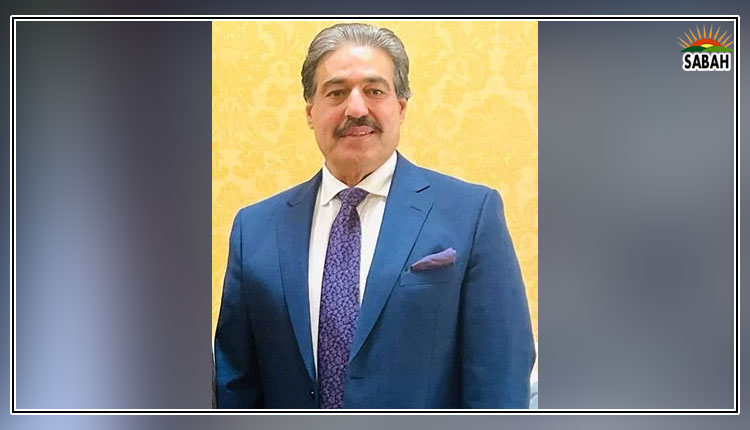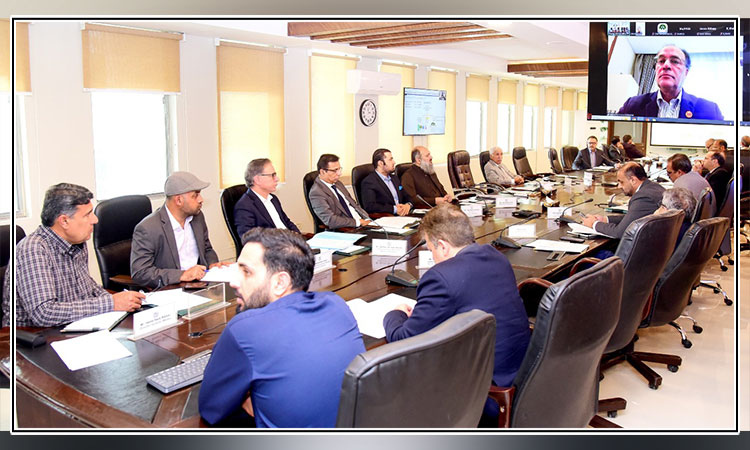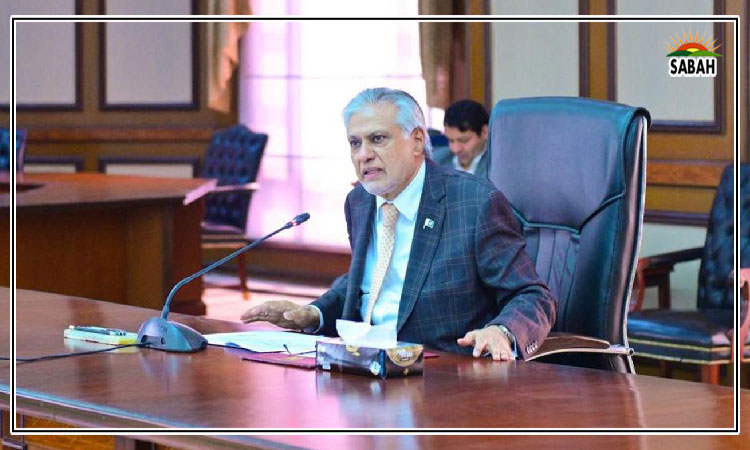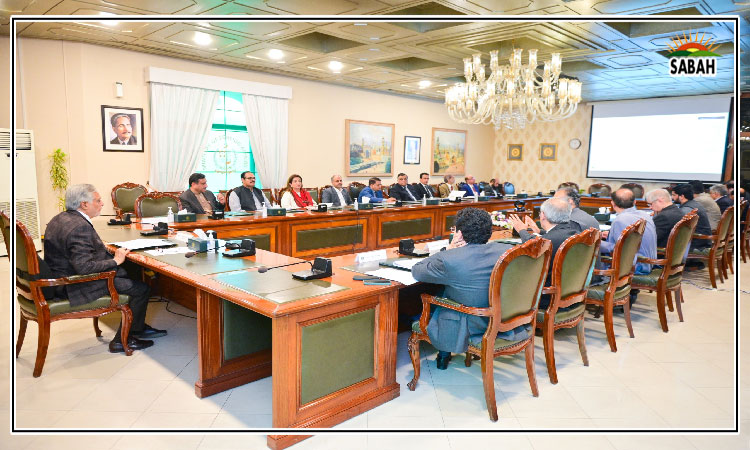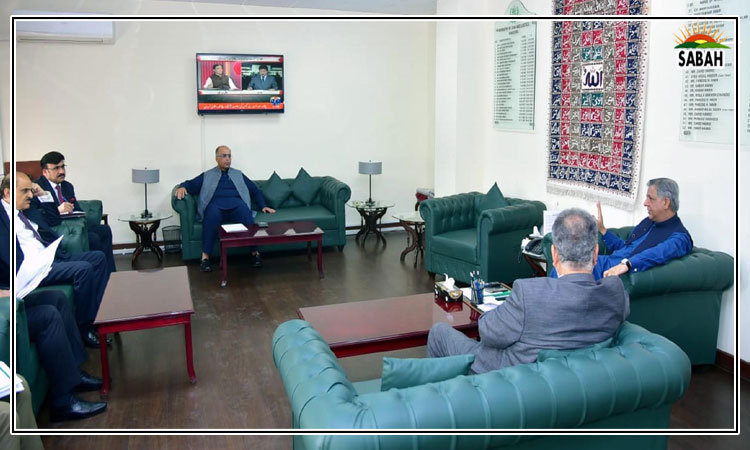Document all sectors … Abdul Sattar Babar
In recent years, Pakistan has weathered a barrage of formidable challenges that have tested the nation’s resilience. The political landscape has been marred by unrest, creating ripples of instability across various sectors.
Simultaneously, the economic terrain has been fraught with turmoil, exacerbating an already complex situation. The economic woes plaguing Pakistan have been multifaceted, with inflation soaring to unprecedented heights. The resultant impact has been acutely felt, diminishing the purchasing power of the population and straining household budgets. This economic strain has been further compounded by the devaluation of the national currency.
The imbalance between low revenue generation and burgeoning expenditures has led to a pervasive reluctance among citizens and businesses alike to file their taxes. This hesitancy further widens the existing tax gap, creating a significant shortfall in the government’s revenue collection efforts. The widening chasm between income and expenses poses an intricate challenge, straining the nation’s fiscal health and hindering sustainable development initiatives.
In the face of these multifaceted challenges, Pakistan stands at a critical juncture, necessitating concerted efforts to restore economic stability, bolster revenue streams, and institute robust fiscal policies. These measures are pivotal in fortifying the country’s economic foundations and charting a path towards sustainable growth and prosperity for its citizens.
In the midst of these complex challenges, Ipsos, a renowned global leader in market research, embarked on an expansive endeavour to delve into the intricacies of Pakistan’s economic landscape. This comprehensive study cast its investigative net across five pivotal sectors that significantly shape the nation’s economic tapestry: real estate, cigarettes, tyres and lubricants, pharmaceuticals, and tea.
The choice to spotlight the tobacco sector within this expansive study was deliberate, driven by the sector’s substantial influence and intricate dynamics within the economy. This sector serves as a microcosm reflecting broader economic trends and challenges, making it an ideal lens through which to examine critical issues such as tax evasion.
Cigarettes, being a crucial and widely consumed commodity, occupy a pivotal space within Pakistan’s economic sphere. The sector’s delineation into two distinctive domains – legitimate tax-paying manufactured brands and their illegal counterparts – paints a vivid picture of the industry’s complexities. Despite stringent price regulations, the legitimate sector stands in stark contrast to the sprawling expanse of the illegal market, creating a dichotomy that merits closer examination.
This focal exploration into the tobacco sector illuminates not just the prevalence but also the intricacies of tax evasion, shedding light on the industry’s adherence to regulatory frameworks and uncovering the loopholes that contribute to revenue losses for the nation. Understanding the nuances within this sector provides valuable insights into the broader economic landscape, guiding policymakers and stakeholders toward informed decisions and strategic interventions essential for navigating these challenging times.
The illegitimate cigarette market within Pakistan manifests in multifarious forms, encompassing locally manufactured tax-evaded brands, smuggled brands, and counterfeit brands. The legitimate sector pales in comparison to the sprawling nature of the illicit market. Within the illicit domain exist locally manufactured tax-evaded brands, complying with the minimum legal price of Rs127.44 but evading taxes. Additionally, smuggled brands lack traceability regarding their origin and distribution. Counterfeit brands, previously problematic, have faced cost escalations due to rising inflation.
The current landscape within the tobacco sector reveals an unprecedented 150 per cent hike in Federal Excise Duty (FED) since February 2023, coinciding with a surge in smuggling activities nationwide. Yet, enforcement of the minimum price and the implementation of a comprehensive track and trace system remain lacking, allowing illicit brands to flourish.
This increase in downtrading from higher priced legitimate brands to illegitimate tax evading brands is causing the national exchequer losses to the tune of nearly Rs300 billion annually. Only once a nationwide crackdown against the sprawling illegitimate sector is conducted will the nation move towards progression.
Moving forward demands a multi-dimensional strategy that acknowledges the complexity of the challenges at hand. Rigorous enforcement of the minimum legal price serves as a foundational pillar in curtailing the proliferation of tax-evaded brands within the sector. This strict adherence to pricing regulations acts as a crucial deterrent, preventing the undue advantage enjoyed by illicit entities while safeguarding fair competition in the market.
Simultaneously, a judicious reassessment and rationalization of fiscal measures present a strategic avenue to alleviate the burden placed on compliant entities. Such measures can serve to level the playing field, fostering an environment conducive to healthy competition while alleviating undue pressure on legitimate businesses.
The linchpin in fortifying regulatory oversight lies in the comprehensive implementation of a uniform track and trace system. This system would effectively bridge existing gaps, significantly reducing the avenues for tax evasion and ensuring stringent regulatory compliance across the board.
This multi-pronged approach is not only imperative for the tobacco sector but holds wider implications for the economy at large. It represents a conscientious effort to fortify regulatory frameworks, deter illicit practices, and foster an environment conducive to sustainable growth and compliance.
By meticulously addressing these critical facets – enforcement of pricing regulations, fiscal recalibration, and the implementation of a comprehensive track and trace system – the way forward beckons towards a more regulated, equitable, and resilient tobacco industry that aligns with national objectives of economic stability and integrity.
Navigating Pakistan’s economic landscape demands collective action. Addressing the surge of illicit cigarettes not only safeguards economic integrity but also revitalizes the nation’s fiscal health. Collaboration among authorities, stakeholders, and international partners remains paramount in steering the tobacco sector and, consequently, the economy towards compliance and stability.
The writer is CEO of Ipsos Pakistan.
Courtesy The News



